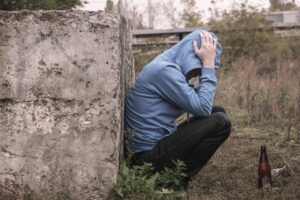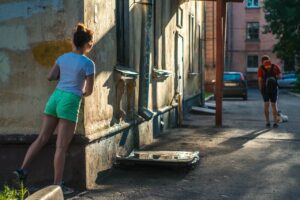Ecclesiastes 1:2; 2:21-23 (RM) or 1:2, 12-14; 2:18-23 (RCL); Psalm 90 (RM) or 49 (RCL); Colossians 3: 1-5, 9-11 (RM) or 1-11 (RCL); Luke 12: 13-21.
A cartoon that appeared in The New Yorker magazine shows a sad-looking couple in mourning clothes, seated in the office of an attorney. The lawyer straightens his sheaf of papers and solemnly announces, “He took it with him.”
So much for “You can’t take it with you.” And so much for the hypothetical wealthy landowner in the parable Jesus tells in today’s Gospel. Or is it that simple?
On a practical level the man’s decision could make a good deal of sense for us today. Just think of the necessity of saving for retirement, especially if your work life has been uneven, or if you’re not confident of the future stability of your national pension plan — CPP, Social Security and so on. What if you need years of nursing home care — where’s the money coming from? That’s not to mention possible emergencies along the way. How foolish, not to save up and salt away what you can. But there’s more here than self-evident wisdom. There’s also a deeper wisdom.
We’ve got a number of funny little “wait, what?” glitches in this parable, a story unique to Luke. It begins as “someone in the crowd” asks Jesus to perform a function that rabbis and religious authorities customarily did in that culture — arbitrate family disputes in their role and responsibility as governing dignitaries. It was a sign of respect for Jesus, this itinerant preacher. And it was a cry for justice. The man protested because his brother had taken a larger share of their joint inheritance, or all of it: normally the eldest brother would get a double share but not the whole thing. So far, there’s nothing particularly unusual here.
But Luke turns the plea for a just ruling into a teaching on setting priorities in a way that’s not an obvious shift in the set-up of the story. Jesus objects to the role he’s been asked to play, and instead of justice, he tells the crowd to avoid greed. Greed? Was this the issue?
The story proceeds: a man’s land produces a rich harvest (so far so good.) It’s more than he can use. So he thinks to himself (it might be better to seek wise counsel, but OK): “I’ll pull down the small barns and build bigger ones.” Wouldn’t it make more sense to keep the old barns instead of wasting time and work tearing them down, and simply build another, bigger barn or two? In addition to the question of storage space is the question of just how many years this supply will remain edible. Barns are not coolers or walk-in freezers. Nonetheless, the man thinks he has it made.
But he didn’t have enough time to build that storage. And he couldn’t take it with him.
One giveaway pointing to the moral of the story lies in his line of thinking: “I will do this…I will tear down… I will store all my grain… I shall say to myself…” I, I, I. Me, me, me. In a religious culture in which almsgiving plays a major role, why didn’t he think of distributing the excess to those who had little or nothing? Why not pay a bonus to the farm labourers who had worked so hard to plow, sow and harvest the abundant crops? Why not even invite family and friends to come in and take a share? After all, agricultural crops are not going to last forever … and as it turned out, neither did the man himself.
And there’s not a word of thanksgiving, also a characteristic of his faith culture: no thanksgiving to the labourers, no gratitude for the richness of the earth, no relief that this growing season had flourished due to good weather, no thanks even to God. It was all his and his alone.
Earlier in this gospel Luke anticipates just this reversal of fortune in the Magnificat, Luke 1: 53: the hungry will be filled with good things, and the rich sent away empty. This is one illustration of the Reign of God, now and to come, the “already and the not yet.” This is not a misfortune but a fulfillment of divine justice toward those who suffer deprivation. This is Good News indeed.
© Susan K. Roll
Susan Roll retired from the Faculty of Theology at Saint Paul University, Ottawa, in 2018, where she served as Director of the Sophia Research Centre. Her research and publications are centred in the fields of liturgy, sacraments, and feminist theology. She holds a Ph.D. from the Catholic University of Leuven (Louvain), Belgium, and has been involved with international academic societies in liturgy and theology, as well as university chaplaincy, Indigenous ministry and church reform projects.





Your reflection strips away any illusion about the “self made person”, and how I get into trouble when I think my efforts can stand over and above the contributions of many others. ‘“I will do this…I will tear down… I will store all my grain… I shall say to myself…” I, I, I. Me, me, me.’ Illusion and vanity and suffering.